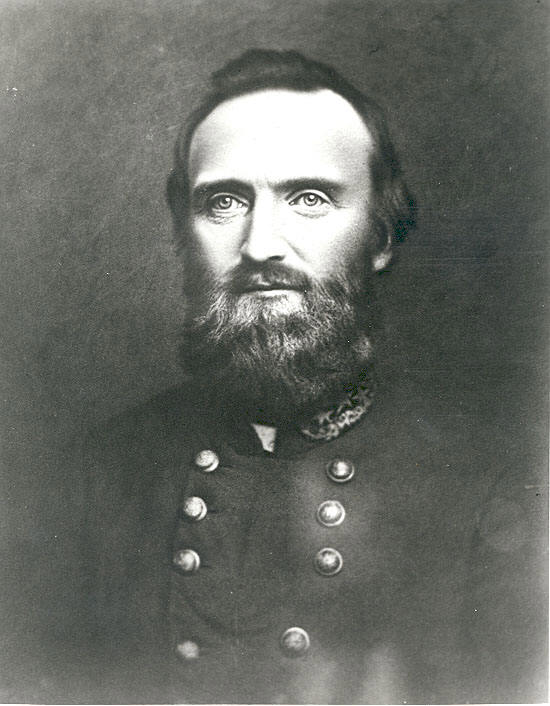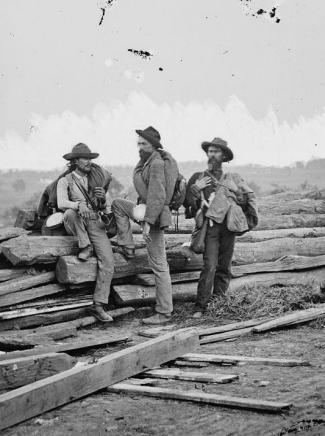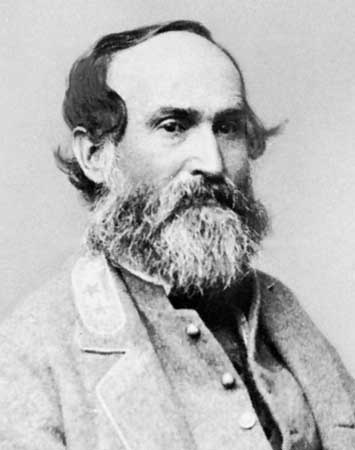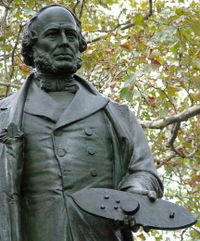- Online edition of newsletter -
Previous Meetings: 2014 2013 2012 2011 2010 2009 2008 2007 2006 2005 2004 2003 and before
Meeting: December 12, 2006
|
STONEWALL JACKSON’S FOG OF WAR: The Operational Triangle of May 24, 1862 Perhaps no single day of the 1862 Shenandoah Valley Campaign has intrigued campaign authors and biographers of its participants more than May 24, 1862, the day sandwiched between the battles of Front Royal and Winchester. Although the historians’ efforts have significantly clarified Major General Thomas J. Jackson’s movements beyond what he revealed in his official report, the story is still incomplete. Furthermore, the time frame for delivering dispatches and moving troops along and across the roads between Winchester, Strasburg, and Front Royal has yet to be fully appreciated. When all the materials dealing with this pivotal day are re-evaluated, they tell a story about this campaign never revealed before. Gary Ecelbarger will present an updated analysis of the events of May 24, 1862, to the Baltimore Civil War Round Table, based on a reevaluation of the primary sources that provide the framework for the decisions and actions of this pivotal day. Ecelbarger has researched and written about the 1862 Shenandoah Valley Campaign for 15 years. He is the author of three books and three contributed works about the Civil War. His next book, a detailed history of the battles of Front Royal and Winchester, will be released by University of Oklahoma Press in the fall of 2007. |
|
Meeting: November 14, 2006
|
There are perhaps more
myths and controversies that swirl about the battle of Gettysburg than any
other battle of the American Civil War. Did the battle occur because the
Confederates were looking for shoes in Gettysburg? Could Ewell have captured
Cemetery Hill on July 1? Was Sickles’ advance a blunder or did it help ensure
Union victory? What was Lee's objective in the great assault of July 3? Join
Gettysburg National Military Park Supervisory Historian Scott Hartwig as he
examines these and other Gettysburg questions.
David Scott Hartwig was born in Baltimore, Maryland in 1955 and grew up in Willow Grove, Pennsylvania, outside of Philadelphia. He attended the University of Wyoming in Laramie, Wyoming from 1974 1979, graduating in 1978. While attending the university he studied under, and grew to know quite well, E. B. "Pete" Long, a wonderful man possessed with an astounding knowledge of the Civil War. In 1979 Hartwig accepted a seasonal position with the National Park Service at Gettysburg NMP. In the summer of 1980 he began work as a full-time historical interpreter at the Eisenhower NHS. He transferred to Gettysburg NMP in 1981, and in 1988 was promoted to Supervisory Park Ranger. In 1994 he was promoted to Supervisory Park Historian. |
|
Meeting: October 10, 2006
|
Our speaker will be BCWRT Board Member
Bob Mullauer. Bob was a high school history teacher for over a decade.
He currently teaches evening courses at Anne Arundel Community College in
addition to speaking to a variety of groups on topics such as the American
Civil War in the Western Theater, World War II in the Pacific, and the
Napoleonic Wars. He has led United States Army officers on staff rides over
the Chickamauga and Chattanooga battlefields. Besides Civil War battlefields,
his travels include tours of World War II battlefields in the Pacific as well
as Normandy, the Bulge, Verdun, and various Napoleonic sites in Europe. Bob’s topic will be Jubal Early. Jubal Early was born in Franklin County, Virginia on November 3, 1816,the third child of ten. When he was sixteen his mother died and the following year he received an appointment as a cadet to West Point. In 1837, he graduated 18th out of a class of 50. On July 5, 1894, Early led the South's third and final invasion of the North. Crossing into Maryland, Early made his way through Frederick on his way to try to invade the sparsely defended Union capital of Washington, D.C. Along the way, he demanded ransoms from Hagerstown, Maryland and Frederick, Maryland. |
|
Meeting: September 12, 2006
|
Our
September meeting will be our annual “Member’s Show and Tell”.
This is an opportunity for our members to bring items to
demonstrate their Civil War interests and acquired knowledge or that
they wish to sell or trade.
Re-enactors – Come and talk about your unit and some of the reasons you got involved. If you have an ancestor who served in the war, tell us a little about him (or her). We encourage all of our members to take part. Some members may wish to make a short talk on the topic of their choice. Basically, anything goes. If you are interested in participating, please contact President Don Macreadie at 410-661-4479 to make arrangements. |
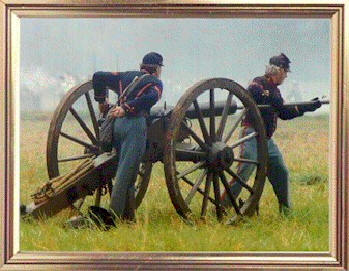 |
Meeting: August 8, 2006
|
Our speaker will be Rev. John W.
Schildt. Reverend Schildt has led tours of Antietam and the Maryland Campaign
for many colleges, military and civilian groups, including the BCWRT. He has
been involved with Dr. Gabor Boritt in the “Gettysburg Civil War Institute”
and also Dr. James Robertson’s “Campaigning With Lee” Seminar. Reverend Schildt graduated from Shephard College, Wesley Theological Seminary and has studied at Western Maryland College, Gettysburg Seminary and West Virginia University. He is the author of several books, including Roads from Gettysburg; September Echoes: The Maryland Campaign of 1862; Roads to Antietam; Stonewall Jackson, day by day; and Stonewall Jackson and the Preachers. Rev. Schildt will talk on Antietam hospitals. "America had never seen a day like it. 12,410 young men from the North were dead, dying, wounded or missing. And 10,700 Confederates, or approximately one of every three engaged had fallen on the fields between the village of Sharpsburg and the Antietam Creek... the area around Sharpsburg was one vast hospital" – Antietam Hospitals, by Rev. John Schildt |
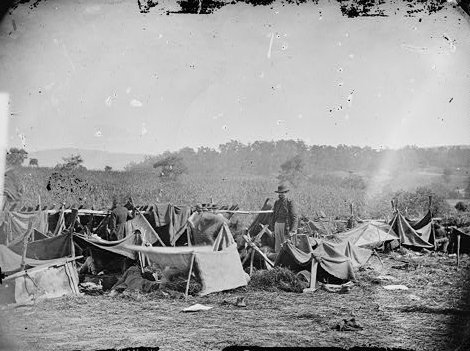 Confederate wounded at Smith's barn under the care of Dr. Anson Hurd of the 14th Indiana Volunteers - Near Keedysville, MD shortly after the Battle of Antietam |
Meeting: July 11, 2006
|
Our speaker will be Lt. Col. (Ret.) Michael
Urban. Lt Col Mike Urban is a Baltimore native who graduated from the
Baltimore Polytechnic Institute in 1973 and the University of Maryland:
Baltimore County (UMBC) in 1977 with a Bachelor’s degree in Geography. Upon
graduation from UMBC, Mike joined the United States Air Force and spent 23.5
years on active duty, moving his family 11 times. During his Air Force career,
Lt Col Urban earned two Master’s degrees in Business Management from the Air
Force Institute of Technology and the State University of New York at
Plattsburgh. Lt Col Urban retired from the U.S. Air Force in 2001 and returned to his home state of Maryland in 2002 where he taught U.S. History and Air Force JROTC in the Baltimore City Public Schools for two years. Mike is currently working as a contractor in support of a Maryland-based federal agency. Mike Urban has always had a passion for U.S. military history with a major emphasis on combat leadership in the Civil War’s Western Theater of Operations. Over the last 20 years, Mike has been reading and accumulating information on the “Rock of Chickamauga”, Major General George Henry Thomas. In 1999, he authored a paper on Thomas and presented a piece of it to the Boston Civil War Roundtable. Lt Col Urban’s July talk will involve another portion of that research and is titled, George H. Thomas, His rightful place in history. |
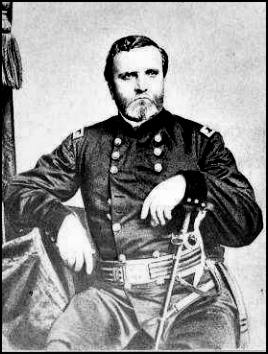 George H. Thomas, “The Rock of Chicamauga” |
Meeting: June 13, 2006
|
Our speaker will be Dr. Craig L.
Symonds. Craig is professor of history at the U.S. Naval Academy
where he has taught Civil War history and American Naval history for
twenty-seven years. At the Academy he has been the recipient of both
the "Excellence in Teaching" Award and the "Excellence in Research"
Award. He is also the author of nine books including CONFEDERATE
ADMIRAL, a biography of Franklin Buchanan, whose defense of Mobile Bay
will be the subject of his talk at the Baltimore Round Table. His
other books include biographies of Joseph E. Johnston and Patrick R.
Cleburne. He has written three battlefield atlases, and two books on
Gettysburg including the AMERICAN HERITAGE HISTORY OF THE BATTLE OF
GETTYSBURG. Dr. Symonds topic is: "The Battle of Hampton Roads and the Recovery of the Monitor Turret". The conflict between the CSS Virginia and the USS Monitor is well known to most Civil War students. But this talk will focus on the story behind that battle, including the motives and personalities of those who advocated armored warships, the arms race in the construction of the two vessels, and the story of what happened to the men and their ships after the battle, including the loss and eventual recovery of the Monitor wreck by a team of Navy divers and NOAA scientists, as well as the preparation of the USS Monitor Center at the Mariners' Museum. |
|
Meeting: May 9, 2006
|
Our speaker for May will be Richard Manning McMurry.
Richard McMurry is a native of Atlanta. In 1961 he received the B.A.
degree in history from the Virginia Military Institute. He then served
two years active duty in the United States Army at Fort Campbell, KY.
Subsequently, he attended Emory University, receiving the M.A. degree
in June 1964 and the Ph.D in June 1967. From 1967 to 1981 McMurry
taught history at Valdosta (Georgia) State College. He was an adjunct
professor at North Carolina State University from 1981 to 1988. Since
that time he has been a freelance writer and speaker and has served as
a guide/historian for many tour and cruise groups.
Richard McMurry has authored more than 100 articles on various aspects of the Civil War. In 1994 two of his books – John Bell Hood and the War for Southern Independence and Two Great Rebel Armies: An Essay in Confederate Military History – were listed among the one hundred best modern Civil War books as selected by the eminent historian Gary Gallagher for the magazine Civil War. The topic of Mr. McMurry’s talk is A Georgian looks at Sherman. One of the Characters in Pat Conroy’s novel Beach Music calls Major General William Tecumseh Sherman the anti-Christ. That is a label that many white Southerners eagerly – if not gleefully – would have applied to the red-headed Union general from Ohio who in 1864-1865 marched across Georgia to the sea and the turned northward through the Carolinas. Others have compared him and his all-conquering armies to Attila the Hun and other barbaric chieftains. Few of these white Southerners have ever bothered to attempt an assessment of Sherman’s great campaigns. We’ll take a look at them through the eyes of a native of the state most closely associated with Sherman’s penchant for arson. |
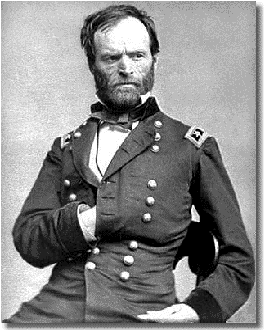
William Tecumseh Sherman |
Meeting: April 11, 2006
|
Our speaker will be Paul Chiles. He will be speaking on the
Battle of Antietam. Born in 1949 in Omaha, Nebraska, Paul V. Chiles was bit by the history bug at an early age. He received a Bachelor of Arts in American History from the University of Nebraska at Lincoln in 1971. During the summers of 1970 and 1971, he worked at Gettysburg National Military Park as a seasonal Ranger Historian and decided to be an interpretive ranger at a Civil War park. Chiles was commissioned into the Infantry through Army ROTC with two years of active duty at Ft. Benning, Georgia, and Ft. Polk, Louisiana, plus four years reserve. He later served two years with the Veterans Administration in Denver, Colorado as a Benefit Counselor to get into the Civil Service. He worked as an Intake Ranger Trainee and Interpretive Naturalist at Badlands National Park in South West South Dakota for five years to get into the Park Service. Chiles has been Antietam's National Park Service Historian since May, 1981. He is also a black powder safety officer and resident small arms and artillery buff. Hobbies and interests are reading (especially history and science fiction), photography, woodworking, leather working, competitive shooting, gunsmithing, reloading, living history, artillery and military technology, and folk, classical and bluegrass music. |
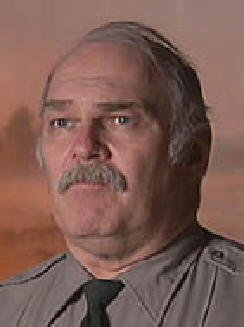 |
Meeting: March 21, 2006
|
Our March meeting is our Annual Banquet. Guest speaker is Ed
Bearss. Mr. Bearss is an independent scholar and historian whose
public career began at the National Park Service in 1955 in Vicksburg,
Mississippi. While there, he conducted research leading to the
recovery of the long-lost Union gunboat Cairo. He also located two
forgotten forts at Grand Gulf, Mississippi, and was instrumental in
having Grand Gulf named a State Military monument. In 1966, he transferred to Washington, D.C., and in 1981 he became the National Park Service chief historian for military sites. Mr. Bearss, winner of the Harry S. Truman Award and the Nevins Freeman Award for Civil War scholarship, continues to serve as a Civil War consultant and conducts detailed battlefield site tours and seminars for the Smithsonian Study Tours program. In 1990, he was a featured commentator for Ken Burns' PBS series, The Civil War, the most popular program broadcast by that network to date. Recently, he has appeared on the Arts and Entertainment Channel's Civil War Journal. Mr. Bearss is a combat veteran of the Pacific Theater during the Second World War. Mr Bearss will talk about the battle of Spotsylvania during Grant’s 1864 campaign His discussion will be a lead-in for the BCWRT Spring Bus Trip to Spotsylvania on Saturday, May 13, 2006. Ed Bearss will also be the guide for that trip. |
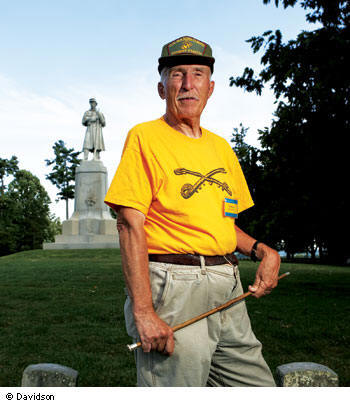 |
Meeting: February 14, 2006
|
Our speakers will be Bob Mullauer and Jerry Bayer.
Bob Mullauer was a high school history teacher for over a decade. He
currently teaches nighttime courses at Anne Arundel Community College
as well as speaking to a variety of groups on topics such as the
American Civil War in the Western Theater, World War II in the
Pacific, and the Napoleonic Wars. He has led United States Army
officers on staff rides over the Chickamauga and Chattanooga
battlefields. Besides Civil War battlefields, his travels include
tours of World War II battlefields in the Pacific as well as Normandy,
the Bulge, Verdun, and various Napoleonic sites in Europe. Jerry Bayer is a former Marylander now living in retirement with his wife, Marianne, in Harper’s Ferry, VA. He is a member of various historical groups, as well as a Life Member of both the SCV and SAR. A 1971 graduate of the University of Baltimore, Jerry has spent a lifetime studying American Military History and World War II. Both He and Marianne are re-enactors and appear in the movie “Gods and Generals”. Bob and Jerry will discuss the Union and Confederate Generals killed at the Battle the Wilderness, May 5-7 1864. |
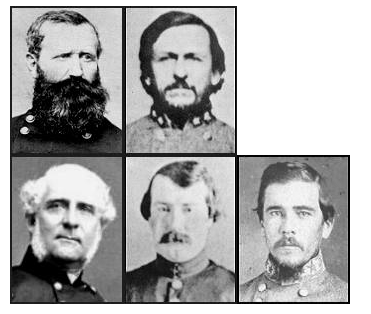 Top
Row: Alexander Hays (USA), Leroy Stafford (CSA) – |
Meeting: January 10, 2006
|
This month the Baltimore Civil War Roundtable welcomes the return of
Courtney B. Wilson as our speaker. Mr. Wilson will once again
be offering informal appraisals and discussions regarding Civil War
Collectibles. Almost everyone has some Civil War artifact that you
have always wondered how much it may be worth; or just what is it? We
encourage you to bring those items to the meeting this month for
Courtney’s expert inspection and appraisal. Courtney B. Wilson is currently Executive Director of the Baltimore and Ohio Railroad Museum, in Baltimore, MD. Previously he was the Museum’s Chief Curator. Courtney was also President of the Baltimore County Historical Society from 1983-1985. He is a nationally known expert appraiser of historical artifacts. |
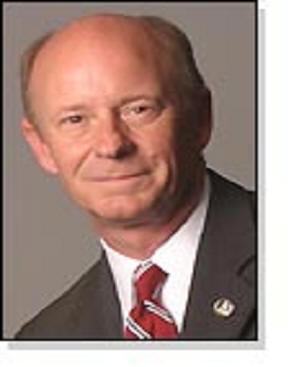 |
Previous Meetings - See what you missed by not being a member!
Join the Baltimore Civil War Roundtable to receive the complete edition of "The Old Liner"!
